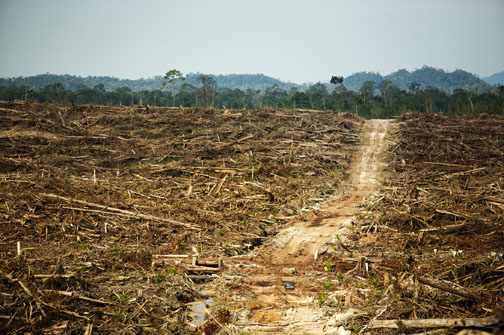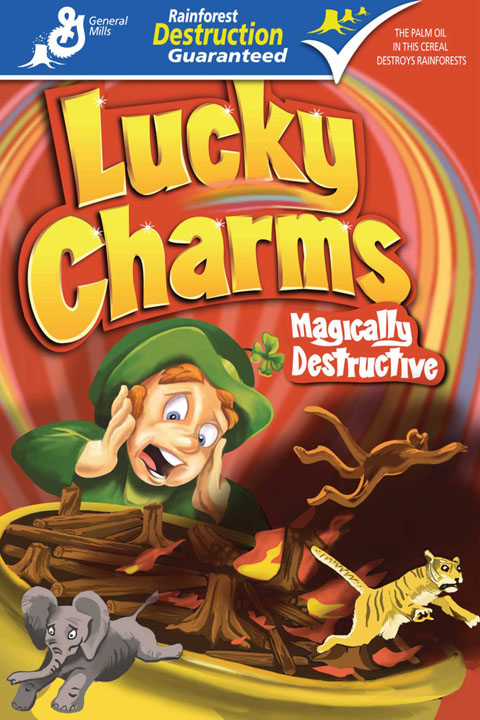 “Few things are more important than a company’s reputation with stakeholders. It represents the sum of all that we do – and reflects the value and trust that consumers, customers, employees, investors and communities place in our company, our brands and our people. We constantly strive to remain worthy of that trust…” says CEO Ken Powell. You’re right about that, Mr. Powell – your company’s reputation is everything, and it’s massively at risk.
“Few things are more important than a company’s reputation with stakeholders. It represents the sum of all that we do – and reflects the value and trust that consumers, customers, employees, investors and communities place in our company, our brands and our people. We constantly strive to remain worthy of that trust…” says CEO Ken Powell. You’re right about that, Mr. Powell – your company’s reputation is everything, and it’s massively at risk.
Unfortunately for General Mills, over three hundred concerned cereal eaters across the U.S. and Canada took to the streets last week for a National Palm Oil Week of Action and distributed 20,000 spoof Cheerios postcards.
Concerned citizens are raising awareness about General Mills’ role in rainforest destruction from California to Minnesota to Alberta, Canada: General Mills is definitely on the spot.
In the world of Corporate Social Responsibility, the past two weeks have been an exciting time for companies like General Mills, receiving awards such as ‘Top Corporate Citizen,’ ranking 47th in the world’s 50 ‘Most Admired Companies’ and 29th on the ‘Diversity List.’ These awards recognize the company’s strong global reputation – at least according to Fortune Magazine and global business leaders.
But what this small group of decision makers doesn’t know is that millions of Indigenous peoples, endangered species and forests are at risk from palm oil expansion in Indonesia – thanks to General Mills.
General Mills, a company recognized for its CSR record, refuses to have a conversation with RAN about their palm oil commitments because of our “antics.” It makes us wonder if General Mills is really committed to “sustainability.”
“General Mills strives to be one of the most socially responsible consumer food companies in the world, and we’re proud to be named one of the 100 Best Corporate Citizens for 2010,” said Ken Powell, chairman and CEO of General Mills. “Each step we take across our businesses, big or small, advances our mission of Nourishing Lives.”
Which lives, exactly, is he nourishing? The lives of the children in the U.S. eating rainforest destruction-tainted Cheerios? Or the lives of the millions of forest-dependent people forced off their land to make way for monoculture palm oil plantations that release vast amounts of carbon into the atmosphere and destroy the precious habitat of endangered species, like orangutans and Sumatran tigers?
Will General Mills continue claiming that they support responsible palm oil while purchasing it from one of the worst palm oil supplier in the world – Cargill? RAN won’t quit campaigning until General Mills starts truly honoring their commitment to “Corporate Social Responsibility” by sourcing only environmentally and socially responsible palm oil. Until then, these awards mean nothing.
Over six hundred people and counting have already signed up for another national week of action for the first week of April! We will be passing out thousands of spoof Lucky Charms postcards as one of the many General Mills brands that contain palm oil ingredients.
Due to our combined efforts, more than 45 American companies have committed to using only environmentally and socially responsible palm oil. Guess who’s not quite ready to make that same commitment? General Mills. Turns out Lucky Charms aren’t so lucky for the local people, culture and biodiversity of Indonesia’s lush tropical islands.
When General Mills steps up and cancels their contract with Cargill, their performance will merit an award they are actually deserving of. Until then, anyone who uses the word ‘responsible’ in the same sentence as General Mills is misguided and misinformed.

